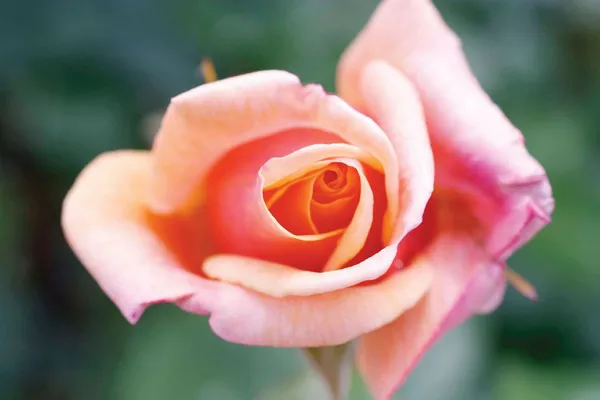Flowers, with their captivating colors, fragrances, and shapes, have always held a special place in human culture and emotions. Among the diverse forms that nature’s floral bounty takes, heart-shaped flowers stand out as symbols of love, affection, and romance. These enchanting blooms have intrigued botanists, florists, and poets for centuries. In this article, we will dive deep into the world of heart-shaped flowers, exploring their names, symbolism, and significance in various aspects of human life.
The Language of Love: Heart-Shaped Flowers
1. The Bleeding Heart (Dicentra Spectabilis)
One of the most iconic heart-shaped flowers is the Bleeding Heart, scientifically known as Dicentra spectabilis. This perennial plant is native to Asia and North America and is characterized by its unique heart-shaped blossoms with delicate, pendulous petals. The deep pink or white flowers evoke a sense of tenderness and devotion, making them a popular choice for gardens and floral arrangements.
2. The Heartleaf Philodendron (Philodendron Hederaceum)
While not a traditional flower, the Heartleaf Philodendron deserves a mention due to its heart-shaped leaves. This versatile houseplant is a favorite among indoor gardeners for its striking foliage and ease of care. Its heart-shaped leaves symbolize enduring love and lasting friendships.
3. Bleeding Heart Vine (Clerodendrum Thomsoniae)
The Bleeding Heart Vine is another charming addition to the world of heart-shaped flora. Native to West Africa, this climbing plant produces clusters of red or pink heart-shaped flowers with a single white petal protruding from each bloom, giving the impression of a “bleeding heart.” Its unique appearance has made it a symbol of compassion and deep emotions.
Symbolism of Heart-Shaped Flowers
1. Love and Affection
Heart-shaped flowers are universally recognized as symbols of love and affection. Whether presented on Valentine’s Day or used in wedding bouquets, these blossoms convey deep emotional connections and romantic sentiments.
2. Healing and Comfort
In some cultures, heart-shaped flowers, such as the Bleeding Heart, are associated with healing and comfort. They are often given to individuals facing emotional or physical challenges as a gesture of support and empathy.
3. Friendship and Companionship
Heartleaf Philodendron plants, with their heart-shaped leaves, are often used to symbolize lasting friendships and the importance of companionship in our lives.
4. Compassion and Sympathy
The Bleeding Heart Vine, with its distinctive “bleeding” appearance, is a symbol of compassion and sympathy. It serves as a reminder to show kindness and empathy to those in need.
Heart-Shaped Flowers in Art and Literature
Throughout history, heart-shaped flowers have been a source of inspiration for artists, writers, and poets. They have been featured prominently in paintings, sculptures, and written works, serving as powerful symbols of love, beauty, and emotion.
1. Ode to the Bleeding Heart
The Bleeding Heart flower has been the subject of numerous poems and literary works. Its unique appearance and symbolism have inspired poets to craft verses that explore themes of love, longing, and vulnerability.
2. Paintings of Passion
Artists have often incorporated heart-shaped flowers into their works to convey a sense of passion and emotional depth. Renowned painters like Georgia O’Keeffe and Vincent van Gogh have used these blooms to capture the essence of love and desire on canvas.
3. Sculpting Emotion
Sculptors have also been drawn to the beauty of heart-shaped flowers. Intricate sculptures and carvings featuring these blossoms can be found in museums and galleries around the world, serving as enduring testaments to the power of love and art.
Cultural Significance of Heart-Shaped Flowers
1. Romantic Traditions
In many cultures, the exchange of heart-shaped flowers is an integral part of romantic traditions. Whether it’s the red roses of Valentine’s Day or the Bleeding Heart flowers in Japanese culture, these blooms play a central role in expressing love and affection.
2. Wedding Symbolism
Heart-shaped flowers are often incorporated into wedding ceremonies and receptions. They symbolize the love and commitment between couples and are used in bridal bouquets, centerpieces, and floral decorations.
3. Funerals and Mourning
Heart-shaped flowers can also be seen at funerals and memorial services, where they symbolize the enduring love and cherished memories of the deceased. The presence of these blooms offers comfort and solace to grieving families.
Conclusion
In conclusion, heart-shaped flowers hold a special place in human culture, symbolizing love, affection, and emotional depth. These enchanting blooms have inspired artists, writers, and poets for generations, and they continue to play a significant role in our lives, from romantic traditions to moments of healing and comfort. Whether you’re cultivating them in your garden or giving them as a token of love, heart-shaped flowers remain a timeless and enduring expression of human emotion, connecting us to the profound beauty of the natural world.


